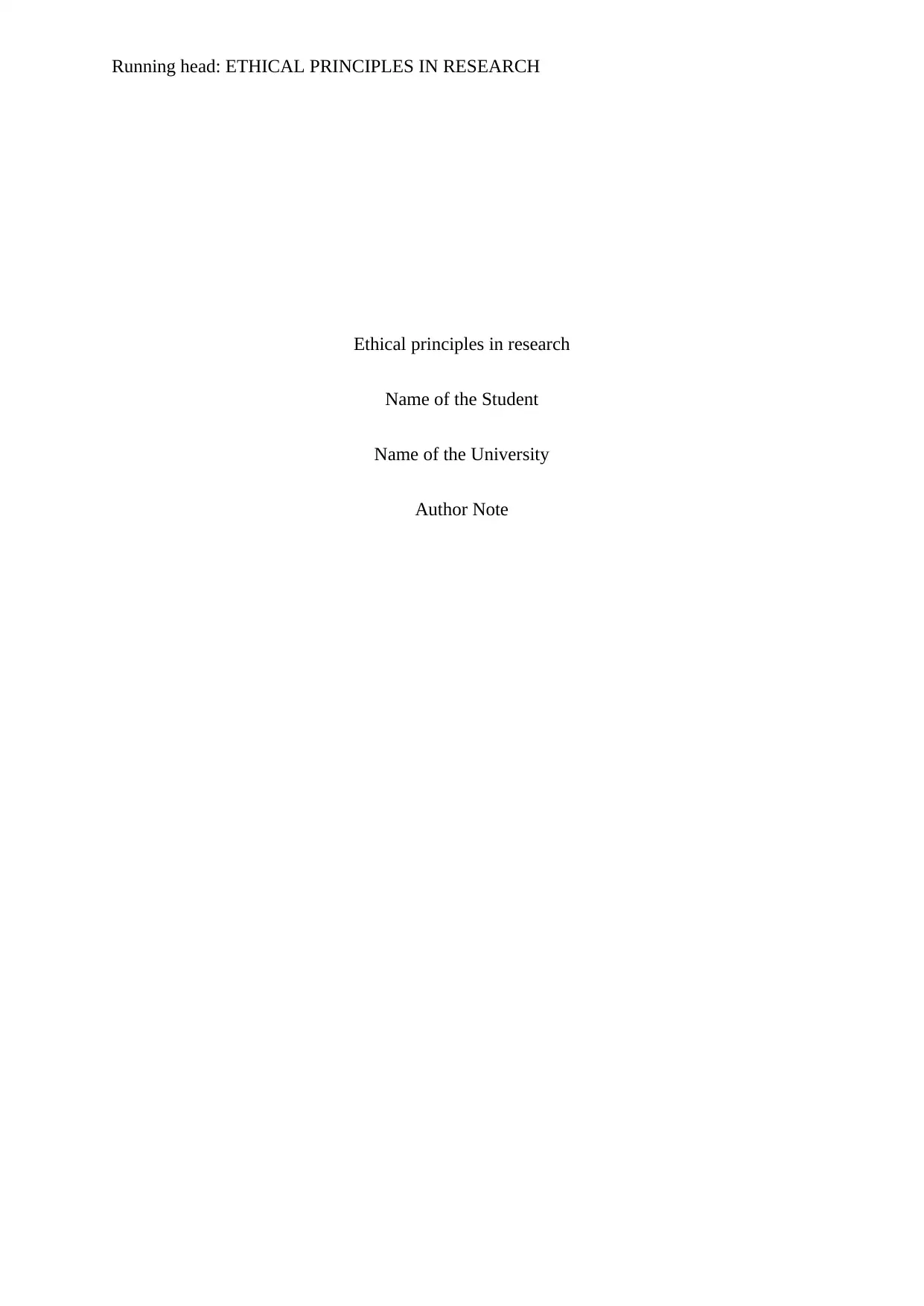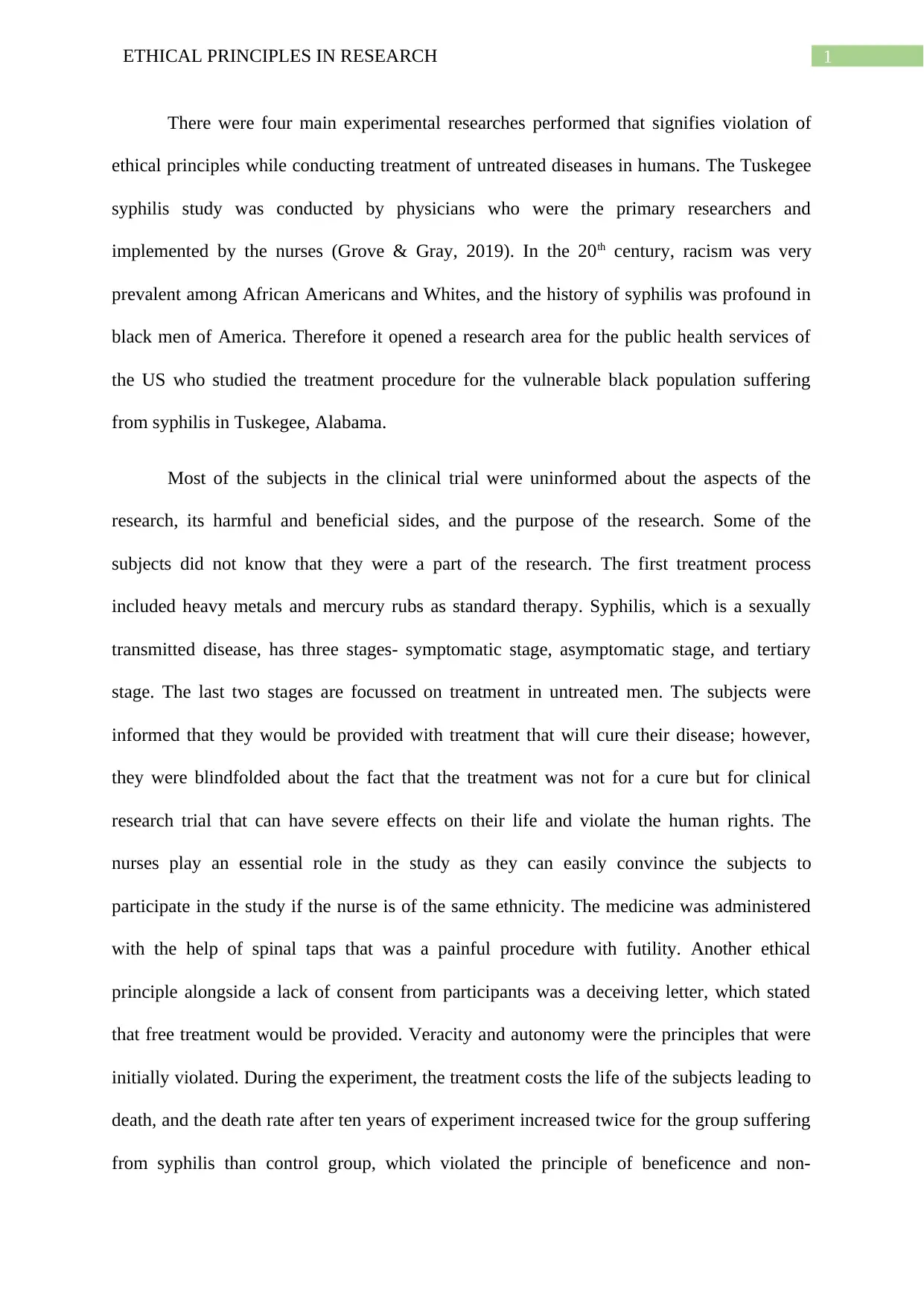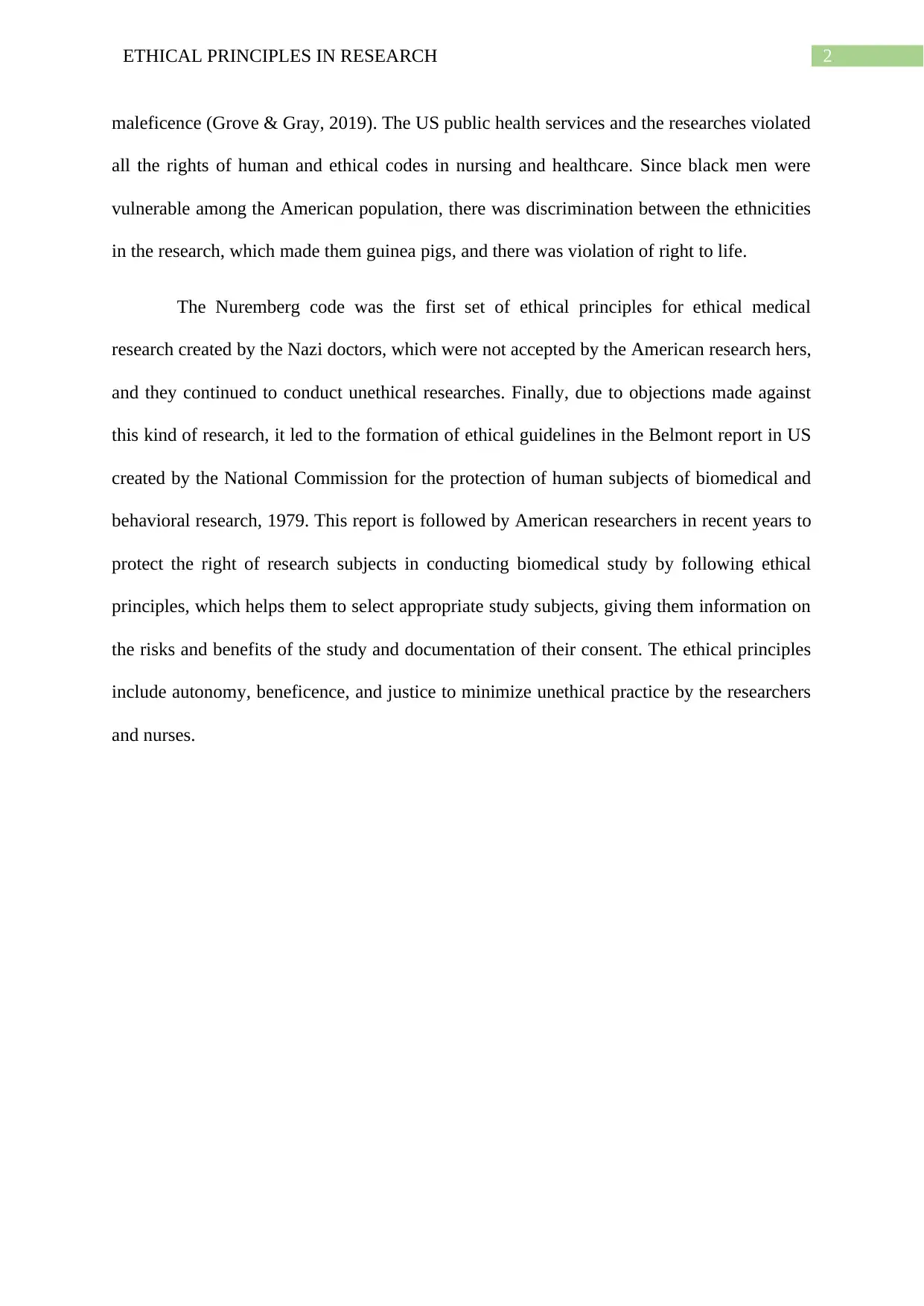Ethical Considerations and Violations in Biomedical Research: A Report
VerifiedAdded on 2022/08/21
|4
|660
|12
Report
AI Summary
This report analyzes ethical principles in research, focusing on a case study involving the Tuskegee syphilis study. It highlights violations of informed consent, beneficence, non-maleficence, autonomy, and justice. The study, conducted by the US public health services, involved deceiving participants and withholding treatment. The report discusses the historical context, the ethical codes violated, and the consequences of the research. It also references the Nuremberg Code and the Belmont Report, which established ethical guidelines to protect research subjects and promote ethical practices in biomedical studies, including proper subject selection, informed consent, and risk assessment.
1 out of 4







![[object Object]](/_next/static/media/star-bottom.7253800d.svg)